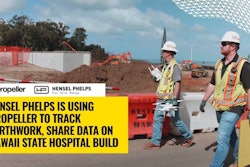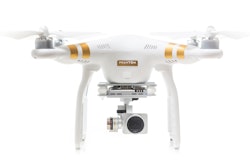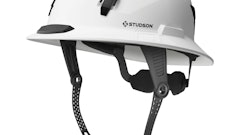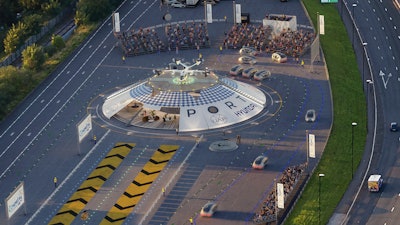
European media outlets are abuzz about recently announced plans in Coventry, England to construct an airport that will serve drones and other electric vertical take-off and landing (eVTOL) vehicles. The airport is expected to be operational in November. Many are referring to the project as a "pop-up airport," as it will be open for one month.
Drones have experienced increased popularity in the construction industry, as the machines are used to better inspect job sites and identify potential hazards, as well as improve efficiency and worker safety. As drones become used more heavily, there will come a time when they will need to follow more regulations and require infrastructure such as airports.
Hyundai Motor Group, Coventry City Council and the United Kingdom government are partnering with Urban Air Port to launch what will be called Urban Air Port Air-One, a hub for future eVTOL vehicles and autonomous delivery drones, to demonstrate the potential of urban air mobility at zero-emissions sites. Hyundai is supporting the Air-One project as part of a plan to commercialize the aircraft by 2028.
Urban Air Port Air-One has been awarded a £1.2 million ($1.6 million U.S.) grant from UK Research and Innovation’s Future Flight Challenge. The program is funded by £125 million from the Industrial Strategy Challenge Fund and is expected to be matched by up to £175 million from industry.
Meeting Demand
The goal is to install more than 200 zero emission sites globally during the next five years. This move is being made to respond to market and customer demand. A NASA Urban Air Mobility (UAM) study published in 2018 predicted there could be a viable market for air metro by 2028 and that vertiports, airports for vertically-travelling vehicles, will likely be stationed on rooftops in heavily-trafficked urban areas. These will likely be used mostly for deliveries, which could include construction materials. For urban air ports to become reality, a number of regulations will need to be put into place to cover issues related to air traffic and fleet operations, airspace system design and implementation, vehicle management and operations and noise requirements, the study points out. Aviation rulemaking in the U.S. typically takes at least 38-42 months. Once viable, that market could be worth $500 billion.
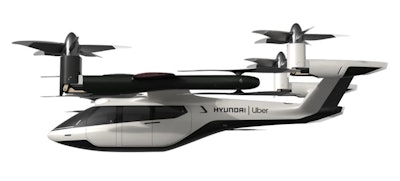 Hyundai's air vehicle concept.Hyundai
Hyundai's air vehicle concept.Hyundai
Urban Air Ports
Urban air ports are smaller than traditional vertiports, typically used for helicopters; 60% smaller, according to Hyundai. The company last year announced a partnership with Uber to develop a future aerial ride share network and unveiled a new aircraft concept at the Consumer Electronics Show (CES).
Why Coventry?
Urban Air Port says it chose Coventry for the first site because of logistics; the city is located just outside Birmingham, in the middle of England, and a few hours from each coast. The city has served as a hub for the automobile and aerospace industry, with a pool of people and skills that can support similar manufacturing industries.
The drone airport fits with Coventry's embrace of new technology. The city was named the best place in mainland England to charge an electric vehicle in a public place and has been building a network of charging facilities across the area.
The decision to open the urban airport comes a year after the city of Coventry restricted the use of hobbyist drones in parks and open spa because people were illegally flying drones at the local airport.
The Air-One site in Coventry will showcase live demonstrations of remote aircraft command and control, charging / refueling and cargo and passenger loading for manned and unmanned eVTOL aircraft operating in three key markets: passenger air taxi services, autonomous logistics and disaster emergency management.






